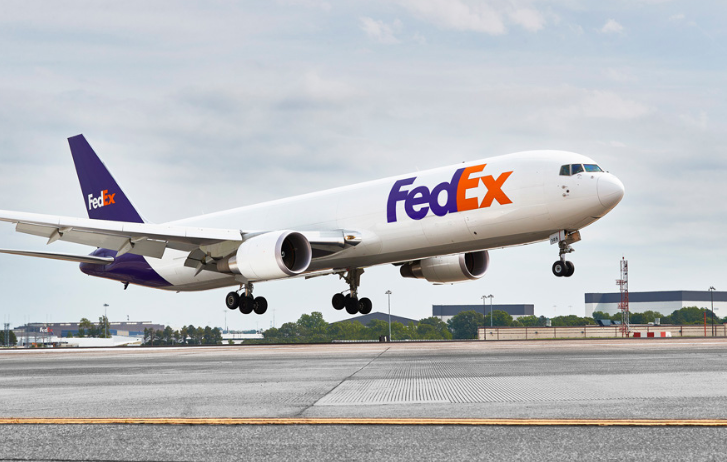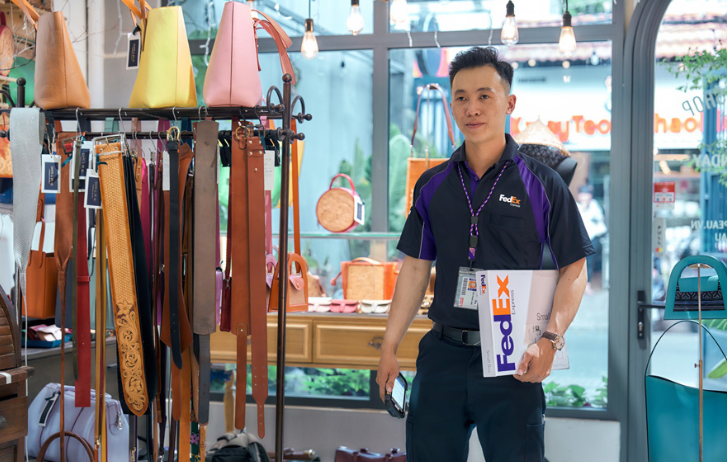
5 Logistics Trends Driving A Smarter Supply Chain
By Kawal Preet | February 7, 2024
FedEx is delivering both transportation and digital solutions, as it builds a smarter supply chain for everyone. For SMEs, early adoption of these trends can help to scale up and enhance business performance.
With millions of packages moving across our global network every day, FedEx sits at the forefront of the logistics industry. It’s our job to spot the latest trends as they emerge.
As we ease in to 2024, logistics providers will continue to operate at the intersection of the physical and digital world. This will give businesses access to a range of possibilities to grow, regardless of their sector and location.
Here’s a glimpse of what we see ahead in 2024:
Trend 1: Asia-Europe trade will continue to drive supply chain growth in Asia
Asia Pacific (APAC) accounts for over 32% of the global air cargo market. One of the strongest drivers of growth in the region is the Asia-Europe Lane, which latest figures show is growing at 8.5% annually.
This growth in Asia-Europe trade is being fostered by multilateral free trade agreements like the RCEP, EVFTA, CPTPP, which is currently outperforming trans-Pacific trade.
In particular, Southeast Asia is an area to watch in 2024 after showing strong upward growth in 2023. APAC businesses have continued to diversify their supply chains post-pandemic. They’re now using Southeast Asia as part of their strategy, driving regional economic integration as a result.
To support the evolving priorities of these businesses, we have expanded our network and services at FedEx, including introducing new flights from Ho Chi Minh City in Vietnam to our APAC hub in Guangzhou, China. We’ve also added new facilities in Clark, Philippines and Batam, Indonesia.
Trend 2: Data and digital will underscore how we deliver
SMEs in Asia are increasingly investing in data and digital technologies to drive their businesses forward. This trend is not just driven by the rapid advancement of technology. It also comes from the growing recognition of the importance of digital transformation, and how it enables them to streamline operations, enhance customer experiences, and make data-driven decisions.
At FedEx, we have always known the power of the data we have in our hands. In fact, 45 years ago, our founder Fred Smith said that the information we hold about a package is just as important as the package itself.
But it’s only with today’s computing power, data analytics, predictive modelling, AI and machine learning, that we’re able to fully harness the power of this data, for the good of our company and our customers.
We’ve created FedEx Dataworks to use digital technology to help us improve supply chain visibility and increase predictability. The solutions we create are helping us troubleshoot problems and delays in near real-time, so we can optimize routes for our deliveries and minimize emissions.
The application of advanced technologies to unlock the power of data will become more firmly embedded in how logistics providers empower SMEs to drive business growth.
Trend 3: Increased collaboration with start-ups will accelerate innovation
Asia has created a vibrant ecosystem for start-ups. One that fosters innovation by bringing together start-ups, industry experts, investors, and research institutions to lead the development of groundbreaking solutions and technologies.
With tailored programs, industry-specific collaborations, regional events, and government support, the pace of innovation in Asia is set to accelerate further in 2024.
Besides setting up our own teams to drive innovation, FedEx also recognizes that partnerships allow us to make big leaps forward fast. In 2023, we launched the FedEx Innovation Lab to make early-stage investments in rising tech start-ups.
Our first investment was in a leader in enterprise AI solutions. We’re now working with them to develop new solutions that will help us improve efficiency. We continue to look for more partnerships with companies like this to help us both transform and develop differentiated services for our customers.
Trend 4: Sustainable logistics will become the norm
Operating more sustainably is both a business imperative and a business opportunity. Customers now expect and demand sustainability in the service providers they engage with.
At FedEx, we are working to meet that need. We have an ambitious plan to achieve carbon neutral operations by 2040 through initiatives like electrifying our vehicles, integrating renewable energy at our facilities, and making our packaging more sustainable.
We’re also offering digital solutions to our customers such as FedEx® Sustainability Insights, which provides them with better visibility of emissions within their supply chains. This helps them decide how to meet their own customers’ expectations, driving their own business and sustainability efforts forward.
Trend 5: There will be increased integration between e-commerce and logistics
Finding new customers in international markets is a smart approach for SMEs to drive revenue growth. To lower the barriers for market entry, having digital channels is key.
Such ‘born global’ e-tailers and their customers demand seamless logistics solutions. This is why we will continue to see increased integration with logistics within the e-commerce ecosystem.
Our FedEx e-commerce experts are providing local market insights to e-tailers looking to build their business strategy. What’s more, we are making it easier for e-tailers to access our services no matter which e-commerce platform they are operating from, and providing solutions that make order fulfillment, last-mile delivery and hassle-free returns more efficient.
For people receiving deliveries, it’s all about convenience and reliability. We offer flexible options for delivery locations, so there’s always somewhere safe to send packages to, especially when your customers are not at home.
By collaborating with retail outlets and smart locker providers, we’ve now created a network of 260,000 self-pick-up locations across APAC. And this network will continue to expand. Even when the shipment is on its way, customers can change their delivery location or receive picture proof of delivery.
Making supply chains smarter for everyone
FedEx is working to make supply chains smarter for everyone, offering greater visibility and flexibility on the packages that are sent, received, or delivered. Ultimately, using technology and greater amounts of continuous, contextual data, we are transforming the way we operate. That means the pace at which we’re developing digital solutions is only going to accelerate in 2024.
SHARE THIS STORY
- How To Ship A Giant Panda
- How To Make Freight Shipments Work For Your Small Business
- The Rise Of Intra-Asia Trade: Opportunities In The China-Southeast Asia Corridor
- Southeast Asia: The Next Manufacturing Powerhouse?
- 8 Most Unusual Shipments In The History Of FedEx
- Where Do Old Planes Go When They Retire?
Sign up now and save on your shipping rates!
Sign up now and earn discounts by shipping instantly with FedEx Ship ManagerTM at fedex.com.
Recommended For You

How New Logistics Trends Shape The Future Of Commerce
The world of commerce is constantly evolving. We explore global trends that businesses should look out for to stay ahead of the competition.
Read More
How An Innovative Indonesian Start-Up Disrupted The Logistics Industry
This B2B trucking platform is on a journey to revolutionize Indonesia’s freight logistics industry for increased efficiency and transparency.
Read More
Singaporean SMEs: Get Ahead Of The Latest E-Commerce Trends
The pandemic has fueled the e-commerce revolution. Here’s how Singapore SMEs can stay ahead of shifting consumer behaviors.
Read More


